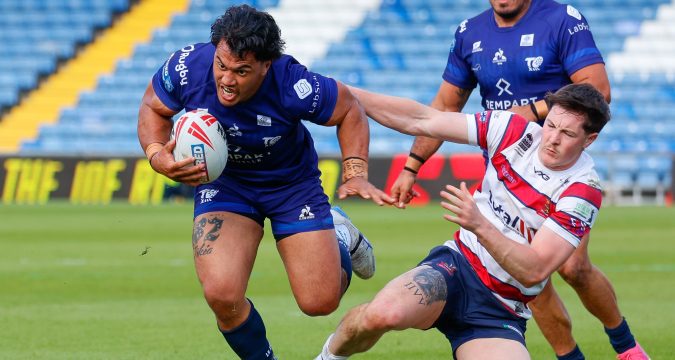 Oldham and Toulouse Olympique are clubs with very different backgrounds but both believe they have what it takes to deserve a spot in next year's expanded Super League competition.
MIKE FORD is not a man who is interested in anyone harping on about the past.
He is not interested in anyone who goes on about how Oldham, his home-town club he is n
Oldham and Toulouse Olympique are clubs with very different backgrounds but both believe they have what it takes to deserve a spot in next year's expanded Super League competition.
MIKE FORD is not a man who is interested in anyone harping on about the past.
He is not interested in anyone who goes on about how Oldham, his home-town club he is n Oldham and Toulouse Olympique make their case for Super League spots
 Oldham and Toulouse Olympique are clubs with very different backgrounds but both believe they have what it takes to deserve a spot in next year's expanded Super League competition.
MIKE FORD is not a man who is interested in anyone harping on about the past.
He is not interested in anyone who goes on about how Oldham, his home-town club he is n
Oldham and Toulouse Olympique are clubs with very different backgrounds but both believe they have what it takes to deserve a spot in next year's expanded Super League competition.
MIKE FORD is not a man who is interested in anyone harping on about the past.
He is not interested in anyone who goes on about how Oldham, his home-town club he is n 